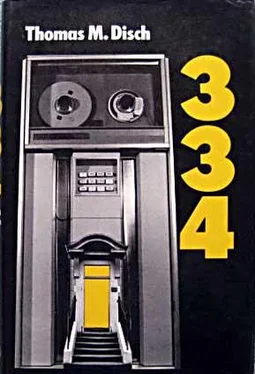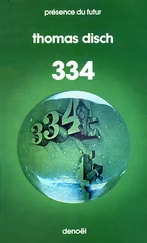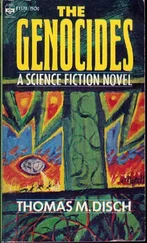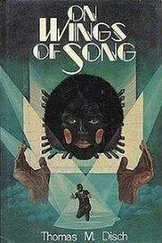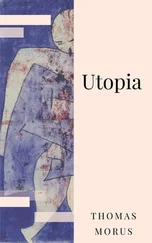Ab considered his commissions from the procurers to be gifts of fate, to be spent in the same free spirit that fortune had shown showering them on him. In fact, when you totted up the various MODICUM benefits the Holts were disbarred from by virtue of Ab’s salary, his real income wasn’t much more (without these occasional windfalls) than the government would have paid him for being alive. Ab usually managed to sidestep the logical conclusion: that the windfalls were his essential wage, the money that made him, in his own consciousness, a free agent, the equal of any engineer, expert, or criminal in the city. Ab was a man, with a man’s competence to buy whatever, within bounds, he wanted.
At this particular April moment, with the traffic so light on the avenue you could drink the air like a 7-Up, with the sun shining, with nowhere in particular to be until ten that night, and with $115 of discretionary income, Ab felt like an old movie, full of songs and violence and fast editing. Boff, smack, pow, that’s how Ab was feeling now, and as the opposite sex approached him from the other direction, he could feel their eyes fastening on him, measuring, estimating, admiring, imagining.
One, very young, very black, in silvery street shorts, stared at Ab’s left hand and stared at it, as though it were a tarantula getting ready to crawl right up her leg. (Ab was everywhere quite hairy.) She could feel it tickling her knee, her thigh, her fancy. Milly, when she was little, had been the same way about her father’s missing finger, all silly and giddy. Mutilations were supposed to be passe now, but Ab knew better. Girls still wet themselves feeling a stump, but guys today were just too chickenshit to chop their fingers off. The macho thing now was a gold earring, for Christ’s sake—as though there had never been a 20th Century.
Ab winked at her, and she looked away, but with a smile. How about that?
If there were one thing missing from a feeling of pure content it was that the wad in his pocket (two twenties, seven tens, and one five ) was so puny it almost wasn’t there. Before revaluation a three-body week like this would have put a bulge in his front pocket as big as another cock, a comparison he had often at that time drawn. Once Ab had actually been a millionaire—for five days running in July of 2008, the single most incredible streak of luck he’d ever had. Today that would have meant five, six thousand—nothing. Some of the faro tables in the neighborhood still used the old dollars, but it was like a marriage that’s lost its romance: you said the words but the meaning had gone out of them. You looked at the picture of Benjamin Franklin and thought, this is a picture of Benjamin Franklin. Whereas with the new bills $100 stood for beauty, truth, power, and love.
As though his bankroll were a kind of magnet dragging him there, Ab turned left on 18th into Stuyvesant Town. The four playgrounds at the center of the complex were the chief black market in New York. In the facs and on TV they used euphemisms like “flea market” or “street fair,” since to come right out and call it a black market was equivalent to saying the place was an annex of the police department and the courts, which it was.
The black market was as much a part of New York (or any other city), as basic to its existence, as the numbers from one to ten. Where else could you buy something without the purchase being fed into the federal income-and-purchase computers? Nowhere was where, which meant that Ab, when he was flush, had three options open to him: the playgrounds, the clubs, and the baths.
Used clothing fluttered limply from rack after rack, as far as the fountain.
Ab could never pass these stalls without feeling that Leda was somehow close at hand, hidden among these tattered banners of the great defeated army of the second-rate and second-hand, still silently resisting him, still trying to stare him down, still insisting, though so quietly now that only he could hear her: “Goddamn it, Ab. can’t you get it through that thick skull of yours, we’re poor, we’re poor, we’re poor!” It had been the biggest argument of their life together and the decisive one. He could remember the exact spot. Under a plane tree, just here, where they had stood and raged at each other, Leda hissing and spitting like a kettle, out of her mind. It was right after the twins had arrived and Leda was saying there was no help for it, they’d have to wear what they could get. Ab said fuckshit, no, no, no kid of his was going to wear other people’s rags, they’d stay in the house naked first. Ab was louder and stronger and less afraid, and he won, but Leda revenged herself by turning her defeat into a martyrdom. She never held out against him again. Instead she became an invalid, weepy and sniveling and resolutely helpless.
Ab heard someone calling his name. He looked around, but who would be here this early in the day but the people from the buildings, old folks plugged into their radios, kids screaming at other kids, babies screaming at mothers, mothers screaming. Half the vendors weren’t even spread out yet.
“Ab Holt—over here!” It was old Mrs. Galban. She patted the space beside her on the green bench.
He didn’t have much choice. “Hey, Viola, how’s it going? You’re looking great!”
Mrs. Galban smiled a sweet, rickety smile. Yes, she said complacently, she did feel well, she thanked God every day. She observed that even for April this was beautiful weather. Ab didn’t look so bad himself (a little heavier maybe), though it was how many years now?
“Twelve years,” said Ab, at a venture.
“Twelve years? It seems longer. And how is that good-looking Dr. Mencken in Dermatology?”
“He’s fine. He’s the head of the department now, you know.”
“Yes, I heard that.”
“He asked after you the other day when I ran into him outside the clinic. he said, have you seen old Gabby lately.” A polite lie.
She nodded her head, politely believing him. Then, cautiously, she started homing in on what was, for her, the issue. “And Leda, how is she, poor thing?”
“Leda is fine, Viola.”
“She’s getting out of the house, then?”
“Well no, not often. Sometimes we take her up to the roof for a bit of air. It’s closer than the street.”
“Ah, the pain!” Mrs. Galban murmured with swift, professional sympathy that the years had not been able to blunt. Indeed, it was probably better exercised now than when she’d been an aide at Bellevue. “You don’t have to explain—I know it can be so awful, can’t it, pain like that, and there’s so little any of us can do. But…” she added, before Ab could turn aside the final thrust, “… we must do that little if we can.”
“It’s not as bad as it used to be,” Ab insisted.
Mrs. Galban’s look was meant to be understood as reproachful in a sad, helpless way, but even Ab could sense the calculations going on behind the brown, cataracted eyes. Was this, she asked herself, worth pursuing? Would Ab bite?
In the first years of Leda’s invalidism Ab had picked up extra Dilaudin suppositories from Mrs. Galban, who specialized in analgesics. Most of her clients were other old women whom she met in the out-patient waiting room at the hospital. Ab had bought the Dilaudin more as a favor to the old pusher than from any real need, since he got all the morphine that Leda needed from the interns for next to nothing.
“It’s a terrible thing,” Mrs. Galban lamented quietly, staring into her seventy-eight-year-old lap. “A terrible thing.”
What the hell, Ab thought. It wasn’t as if he were broke.
“Hey, Gabby, you wouldn’t have any of those things I used to get for Leda, would you? Those what-you-call-ums?”
“Well, Ab, since you ask … ”
Читать дальше
